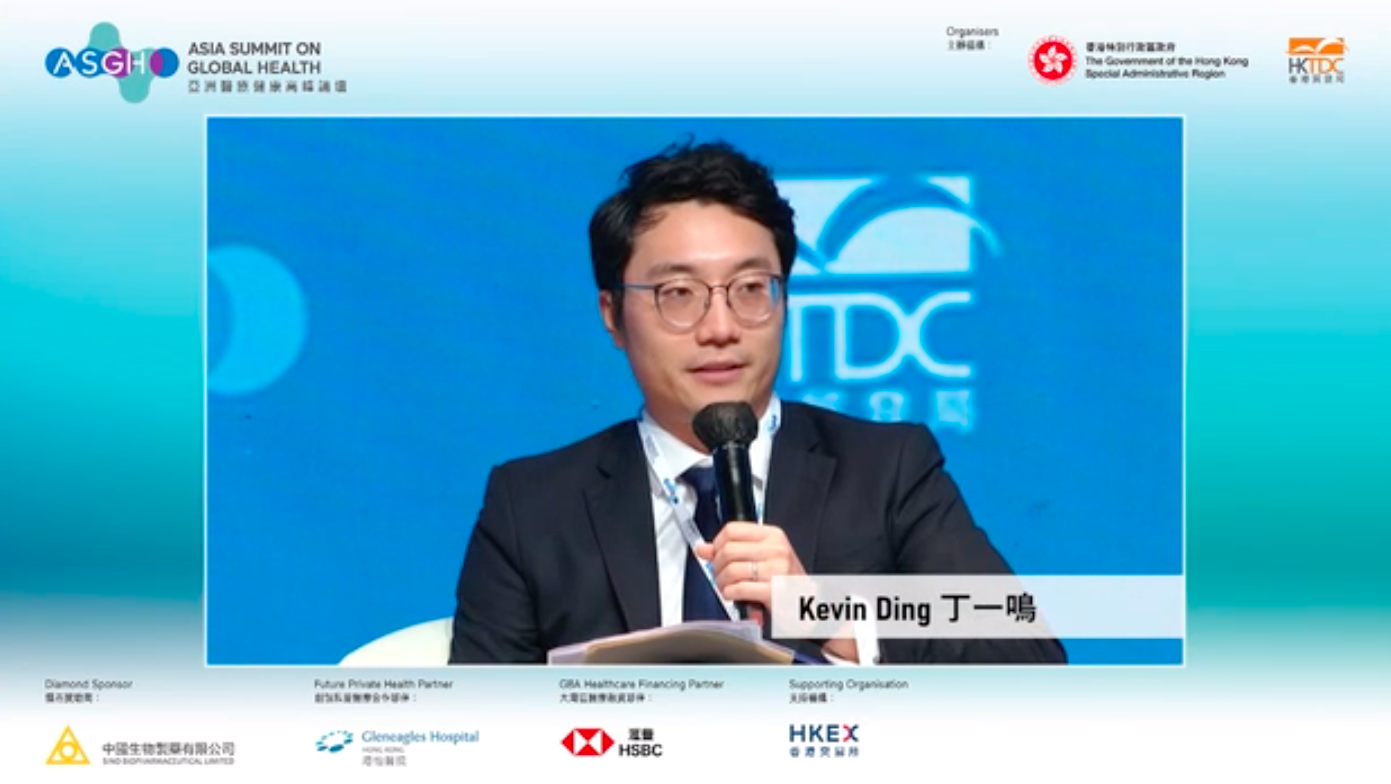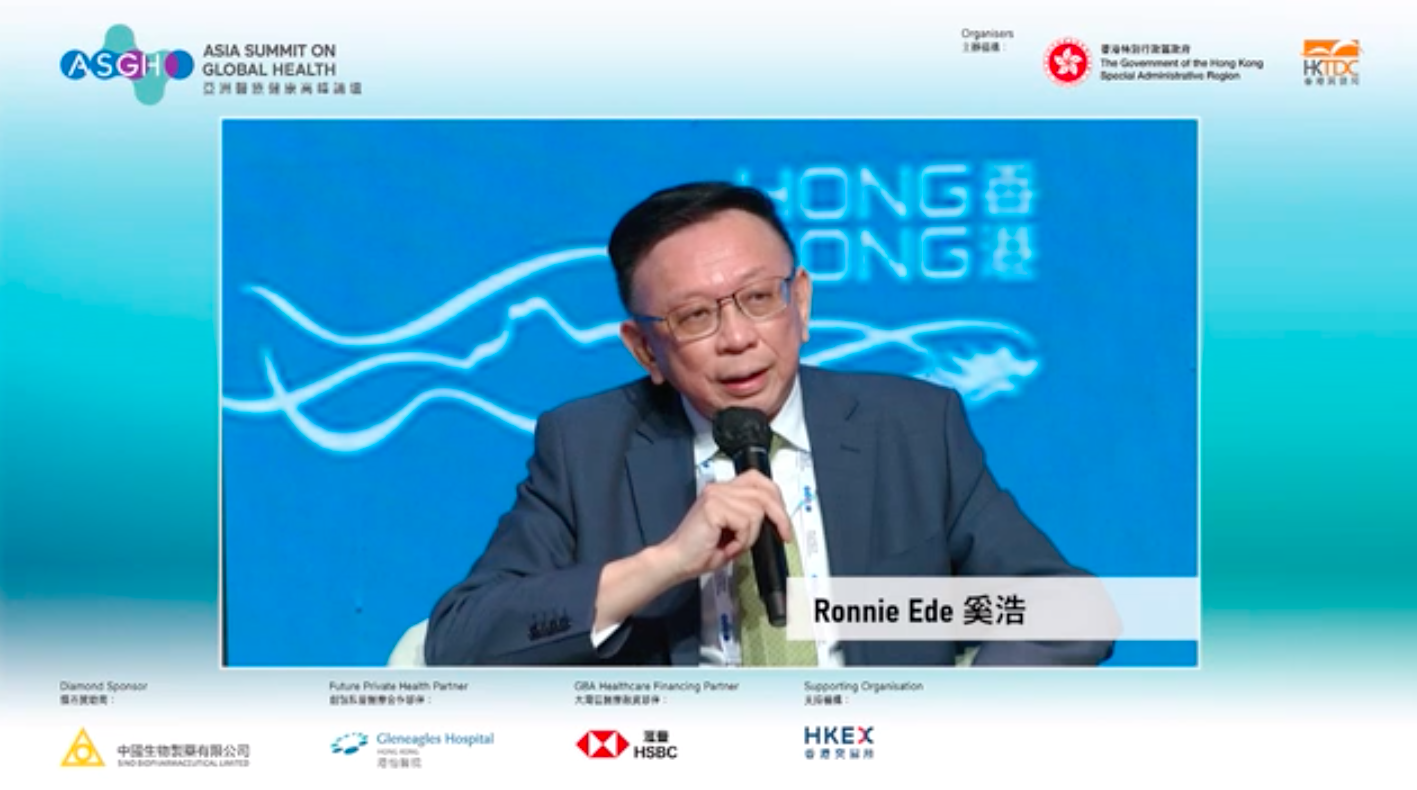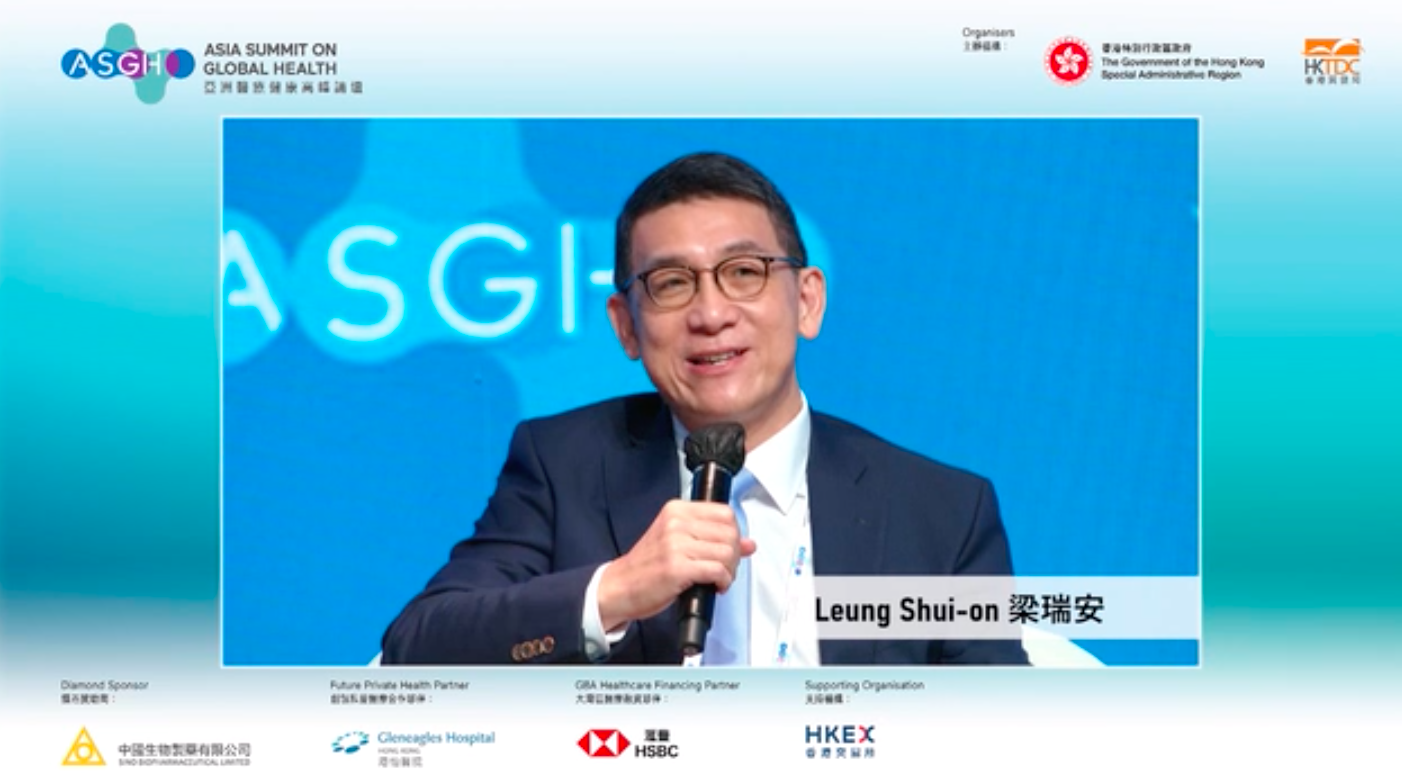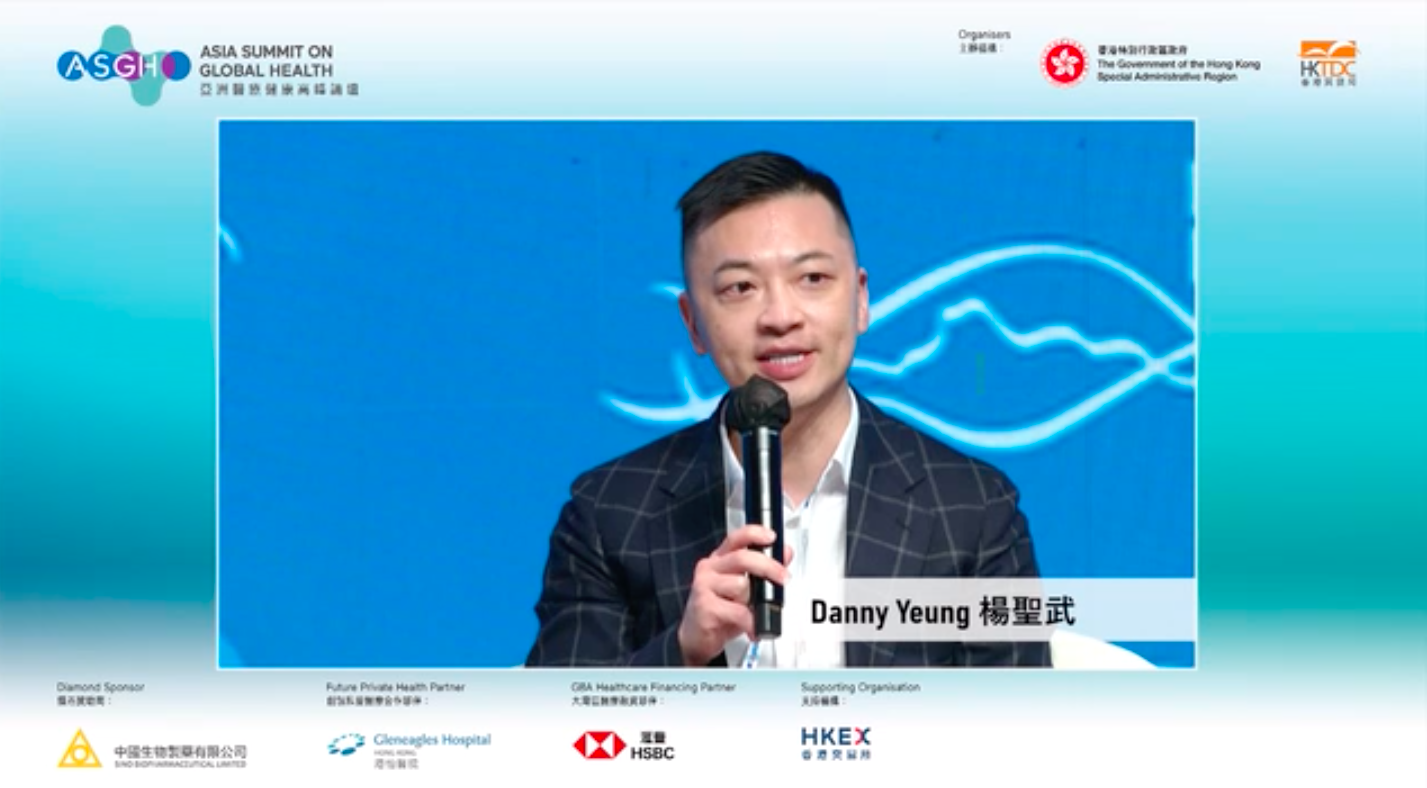Experts Discuss What’s Next for Healthcare Innovation and Investment at ASGH
The Asia Summit on Global Health (ASGH) is an event hosted by the Hong Kong Trade Development Council (HKTDC), and invites experts in finance and healthcare as well as entrepreneurs to discuss trends in investments in Asia’s healthcare and biotech industry, the state of China’s healthcare infrastructure, and the latest developments in smart technologies.
The “What’s Next for Healthcare Innovation and Investment” session at the ASGH was held on November 24. Hosted by Silvia Chen, the Head of China Issuer Services of the Markets Division of HKEX, the event was joined by a panel of leaders in finance and biotech.
The panel included:
- Mr. Kevin Ding, an Executive Director at Goldman Sachs (Asia)
- Mr. Ronnie Ede, CFO of Innovent Biologic
- Dr. Leung Shui-on, Founder and CEO of SinoMab
- Mr. Danny Yeung, CEO and Co-founder of Prenetics Group
In opening remarks by Chen, she described the current state of Hong Kong’s biotech space.
With 70 listed biotechs holding an aggregate fundraising value of over HK$230 billion, Hong Kong is home to the second largest biotech-focused stock market in the world.
Diversifying Investments in HK Biotechs and Growing Private Equity
According to Kevin Ding, Executive Director at Goldman Sachs (Asia), the big draw of Hong Kong’s biotech and healthcare markets come from the diverse number of targets one can choose to invest in. This includes digital healthcare and AI.
Recent years have also seen numerous companies in the Asia Pacific region go public in Hong Kong, or file for secondary listing.
These developments have played a key role in invigorating the financial market.

Ding went on to highlight growing private investments in the biomedical industry in neighboring China, stating that the accumulated capital has hit $25 billion in the last three years.
Interest in the country has led international pharmas like Sanofi and J&J to establish incubators there, and has encouraged overseas Chinese businesses to return to the fold.
Like China, Hong Kong has also seen considerable growth. Innovent Biologic CFO Ronnie Ede noted that the company did not have many biotech peers when it listed in 2018, but now Hong Kong is capable of welcoming biotech businesses.

Robust Activity and a Shift from the West to Asia
SinoMab Bioscience Founder and CEO Leung Shui-On made two observations which highlight Hong Kong’s biotech prowess. First of all, biotech investments are shifting from the West to Asia: of the 10 biggest biotech IPOs in 2020, 6 of them were Chinese, and among those, 5 were listed in Hong Kong.
Secondly, robust innovation and research is driving investments. As technological advancements speed up drug development, they also make the process more adaptive to the latest insights on disease. In short, drugs utilizing novel mechanisms can be quickly developed for novel targets.

Despite its strengths, Leung said Hong Kong is not a standalone market, but is intricately involved in China’s biotech ecosystem. Hong Kong acts as the innovative trailblazer, and is blessed with relatively flexible regulatory policies. These benefits encourage foreign biotechs to establish themselves in Hong Kong in preparation for a dive into the Chinese market, without the need to apply for public listing in the mainland.
Technology and Investments Will Drive Healthcare in Hong Kong
Danny Yeung, who serves as CEO of genetic testing-focused Prenetics, said that as public health awareness rises, demand for at-home rapid testing and diagnostic tools will go up as well. While Covid-19 has put the spotlight on testing, Yeung believes that attention will extend to other infectious diseases and cancer.
The potential of healthcare-focused technology in Asia is vast, and the Southeast Asia market is yet untapped. A lot can be achieved if digital platform analysis were incorporated into testing technologies.

To conclude, the panel discussed the enduring role Hong Kong plays in the global biotech industry. According to Yeung, the special administrative region does not lack talent, but there is still room for improvement in the commercialization department. Meanwhile, Ede emphasized that Hong Kong needs a consistent supply of international investments and interest from overseas companies to expand the biotech industry.
©www.geneonline.com All rights reserved. Collaborate with us: service@geneonlineasia.com








